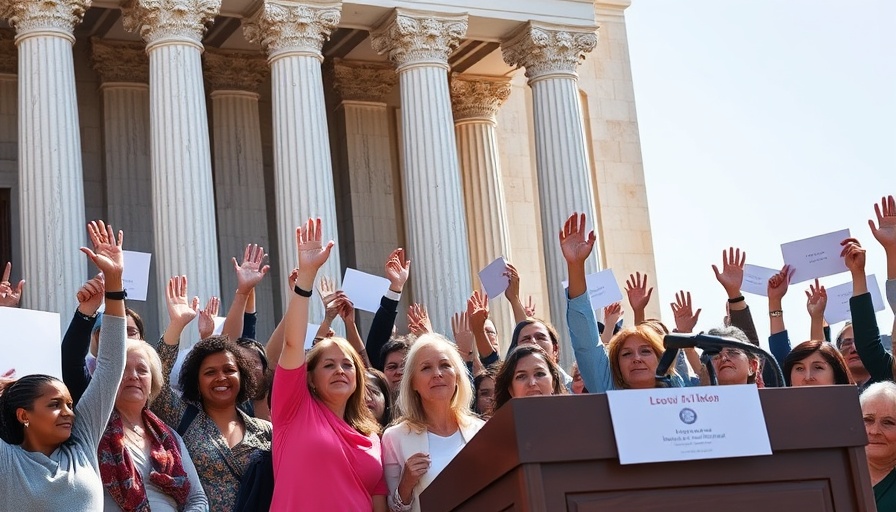
The Push for Justice: Survivors Speak Out
This past Wednesday, a courageous group of survivors of Jeffrey Epstein's horrific sexual abuse stood united on Capitol Hill, demanding accountability and transparency from Congress. Their voices echoed a painful truth: the investigation into Epstein's sex trafficking operations remains shrouded in secrecy, and they are determined to change that. With hundreds rallying behind them and chanting, "release the files," the survivors's call resonates far beyond the marble steps of the Capitol.
Shining a Light on Dark Secrets
During the poignant news conference, some of the women recounted for the first time the traumatic experiences that befell them at the hands of Epstein and his associates. Notably, Ghislaine Maxwell, his ex-girlfriend and co-conspirator, was mentioned as a key figure who lured them into Epstein's exploitative world when they were just teenagers. These public testimonials bring an unsettling reality to light—the manipulation and horror these victims faced was not solely from Epstein but involved a network that enabled such abuses.
The Role of Government and Accountability
As the survivors urged lawmakers to support their transparency efforts, they highlighted the critical need for not only the release of investigation files but also systematic changes in how such cases are handled moving forward. They pressed for Congressional action against any attempts to dismiss the issue, particularly calls from higher political echelons, including former President Donald Trump, who referred to their plight as a “hoax.” This dismissive response shines a light on the urgent necessity for informed and sensitive political discourse surrounding sexual abuse cases.
Broader Implications: The Stories That Resonate
This mobilization of Epstein survivors is not just about their individual stories; it asks us to reflect on a broader culture that often sidelines survivors’ voices. As the movement gains traction, citizens across the country are prompted to question how often similar circumstances happen without proper accountability. It pushes for a cultural shift where survivors are believed, supported, and empowered.
What Can Be Done? Community Activism
Survivors are calling for public support as the movement gains momentum. Communities can foster awareness by participating in advocacy groups, attending local forums to discuss systemic changes, or even mobilizing grassroots campaigns to pressure lawmakers. Every voice matters, especially those who have been affected by similar experiences. Outreach and education can create a supportive backbone for survivors.
Potential Legislative Future: What Lies Ahead
The current appeal for disclosure could lead to significant changes in existing laws governing sexual abuse cases. Lawmakers are being urged to consider new legislation that would require transparency in investigations related to trafficking and abuse. Implementing such reforms could revolutionize how survivors are supported and their cases are processed, ensuring safety and justice.
As this story continues to evolve, the resilience and determination of survivors ensure that the focus on justice remains at the forefront of public consciousness. Their bravery not only empowers other survivors but might also inspire legislative changes that promote safer communities.
Join the Fight for Justice
For those compelled by this story, now is the time to act – become a part of the solution by advocating for transparency and justice in sexual abuse cases. Sharing information, supporting survivors, and lobbying Congress can help ensure that their voices are heard, and ultimately, justice is served.
 Add Element
Add Element  Add Row
Add Row 



Write A Comment